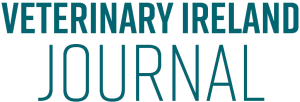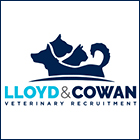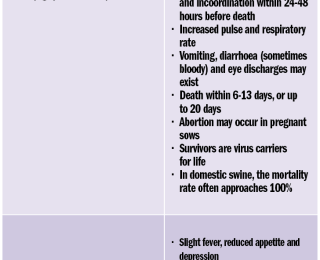Focus - Companion animal - August 2019
African swine fever: the need for increased vigilance
African swine fever (ASF) is a haemorrhagic disease of pigs that has a devastating impact on affected animals, often with mortality rates of 95-100%. The disease is spreading across the world and, within the last two years alone, ASF has spread to nine previously unaffected countries in Europe and Asia resulting in devastating losses for the pig industries there. The Department of Agriculture, Food and the Marine (DAFM) provides a comprehensive overview of the virus and advises on the real need for vigilance
ASF is caused by a large enveloped DNA arbovirus. It affects all members of the pig family (Suidae). It does not affect other animal species or humans. Currently, there is no cure or vaccine available for ASF. There are an estimated 24 genotypes of the ASF virus. Only two of these genotypes can be found outside of Africa: Genotype I, endemic in Sardinia since the 1980s; and Genotype II, responsible for the current outbreaks in Eastern Europe and Southeast Asia.
Clinical signs and routes of transmission
The virus is transmitted by direct contact with infected pigs or wild boar or by the use of infected germinal products or indirect contact via contaminated vehicles, footwear, clothing and equipment. The ASF virus is resistant, especially at low temperatures, which has allowed the disease to prevail in Eastern Europe in wild boar carcases in winter. It can also survive for months in pork and pork products such as cured hams and salami and for years in frozen meat. The virus persists in all tissues and secretions of infected pigs. The incubation period can range from four to 19 days and clinical signs vary depending on the virulence of the strain. The range of clinical signs are included in Table 1. Chronic forms of Genotype II are rare, but cases have been reported in wild boar in Russia, Lithuania and Estonia.
Post-mortem findings include skin lesions, splenomegaly, haemorrhages in the heart, lungs, kidneys, gastrointestinal system and lymph nodes. Excess fluid may be found in the pericardium, pleural and peritoneal cavities.
ASF is a notifiable disease and any suspicion of its presence must be reported to the DAFM without delay by contacting the local Regional Veterinary Office (during office hours) or the National Disease Emergency Hotline (outside of office hours) at 1850 200 456.
Diagnosis
ASF is clinically indistinguishable from classical swine fever and because of the range of clinical and post-mortem findings, differential diagnoses include porcine reproductive and respiratory syndrome, porcine dermatopathy and nephropathy syndrome, erysipelas, Aujesky’s, salmonellosis, and warfarin poisoning. Confirmatory laboratory tests include polymerase chain reaction (PCR) for virus detection and indirect ELISA tests for antibody screening.
Preventing the introduction of ASF into Ireland
There has never been a case of ASF in Ireland and while the risk remains low, because we do not have a feral pig population, the current situation globally means there is a need for increased vigilance, particularly by veterinary practitioners and farmers.
Imports of pork products, live pigs and germinal products from ASF-affected areas – in the European Union or in non-EU countries – are carefully controlled by EU legislation and full compliance with this legislation is imperative. The illegal or inadvertent importation of pork products containing the virus, which are subsequently consumed by pigs represents the most significant risk factor for the introduction of ASF into Ireland. The DAFM, in cooperation with Revenue’s Customs Service implements strict controls on passenger baggage in Dublin Airport, which includes the use of a trained food-detector dog. The DAFM has also engaged in an intensive communications campaign to inform all stakeholders of the risk of ASF. Disease factsheets are available for both vets and farmers, and information was circulated to all registered pig keepers as part of the annual pig census. Posters have been placed in airports and on ferries warning people travelling abroad about the risk of bringing home meat products. Tailored biosecurity information, including a multilingual poster, has been produced for farmers as well as international livestock and general hauliers and hunters who may travel to ASF-affected countries.
Role of vets
Veterinary practitioners have a role in advising farmers about on-farm biosecurity as this is the control measure that will protect the pig industry from ASF. Farmers must be vigilant and implement strict biosecurity on their farms. This includes carefully controlling who comes in contact with their animals and not allowing anyone to bring meat or meat products onto their farms. Outdoor or free-range pigs should be fenced in such a way that they cannot get access to rubbish or waste food that may have been discarded. Funding is available to all commercial pig farmers to have a comprehensive and objective Biocheck.UGent (a risk-based biosecurity scoring system) biosecurity review carried out on their farms by a trained private veterinarian. This service is delivered by Animal Health Ireland and the DAFM is encouraging all farmers to avail of it.
Veterinary practitioners are also asked to remind their clients, particularly those with one or two pigs, that feeding food waste containing meat products, or that has been in contact with meat products, to pigs is prohibited. As it can be difficult to know if food waste has been in contact with meat products, farmers are advised not to feed any food waste to livestock. Food waste should always be disposed of in sealed bins away from livestock.
Conclusion
Preliminary research by Spanish scientists into a vaccine for ASF is promising but further work is required before its effectiveness is proven. For the moment, the threat of ASF is likely to remain and, in order to keep it out of Ireland, it is imperative that all stakeholders, including practitioners, play their part by working with their clients to promote awareness around this devastating disease and by encouraging strict on-farm biosecurity procedures.
Further information on ASF
https://www.agriculture.gov.ie/asf/
893kg of illegal meat seized by DAFM officials
In the first three months of 2019, 893kg of illegal meat was seized by Department of Agriculture, Food and the Marine (DAFM) officials at Dublin airport. This meat was disposed of under DAFM supervision in accordance with rules relating to high-risk animal by-products (Category 1 material).
Recently, Minister for Agriculture, Food and the Marine, Michael Creed, re-emphasised the risk posed by African swine fever (ASF) to the Irish pig industry if meat or meat products from affected animals is brought into the country.
ASF is robust and can survive for weeks or months in chilled, frozen or preserved pigmeat or meat products such as hams and salamis. Outbreaks of ASF have been attributed to the feeding of infected food waste (swill) to pigs, particularly in Asia, where swill feeding has only been recently prohibited. Feeding of food waste that contains or that may have been in contact with meat or meat products has been prohibited in Ireland since 2001.
The importation of meat or meat products into Ireland from non-EU countries is banned. DAFM staff, in conjunction with the Irish Customs Service, carry out checks on passenger luggage at Irish airports to detect consignments of meat and meat products. These checks involve the deployment of risk-based searches of passenger luggage and the use of scanning equipment to detect meat or meat products in passenger luggage. Additionally, a sniffer dog is deployed at Dublin Airport to detect illegal meat.
The DAFM has also stepped up its awareness-raising activities including the deployment of novel alternatives to the traditional posters at airports and ports. Checks at airports are only one component of the response needed by all concerned to address the current risk posed by ASF, according to the DAFM. The critical control measure that will protect Ireland’s valuable pig industry, is the implementation, by farmers, both commercial and hobby, of strict biosecurity measures on farm. Farmers must ensure that the general public do not have access to their pigs and that pigs cannot get access to material containing meat and meat products. Farmers, in particular hobby farmers, are reminded that waste food containing meat and meat products must never be fed to pigs.












